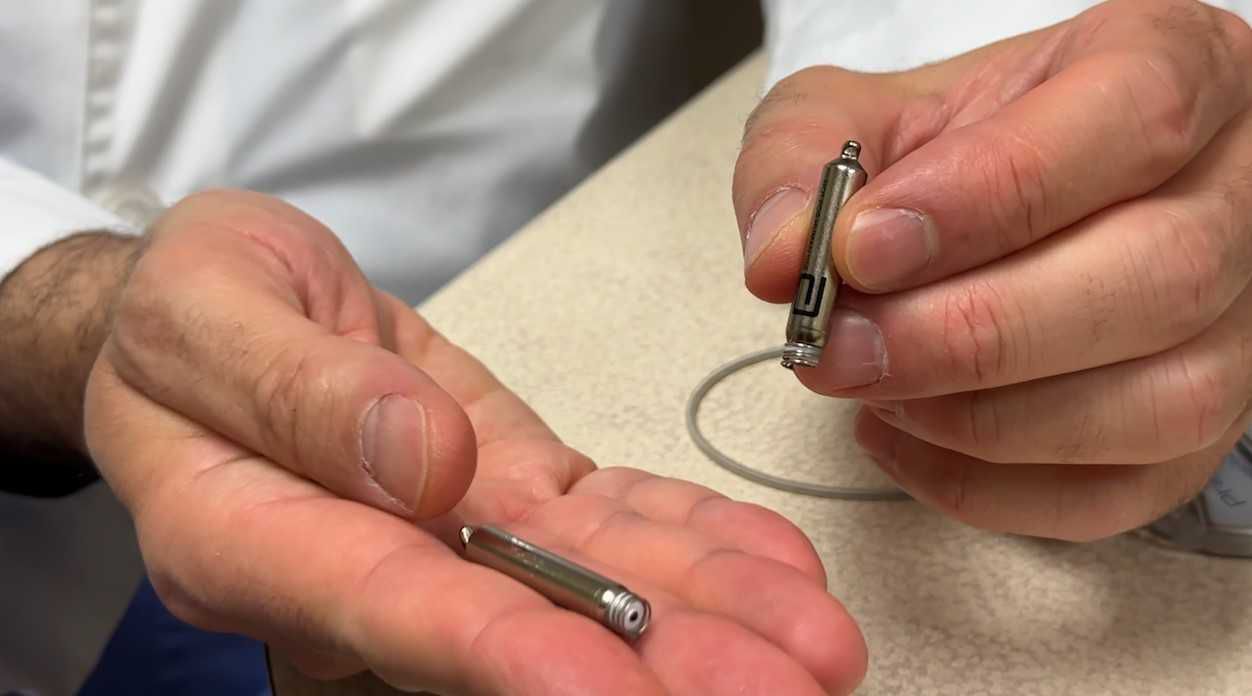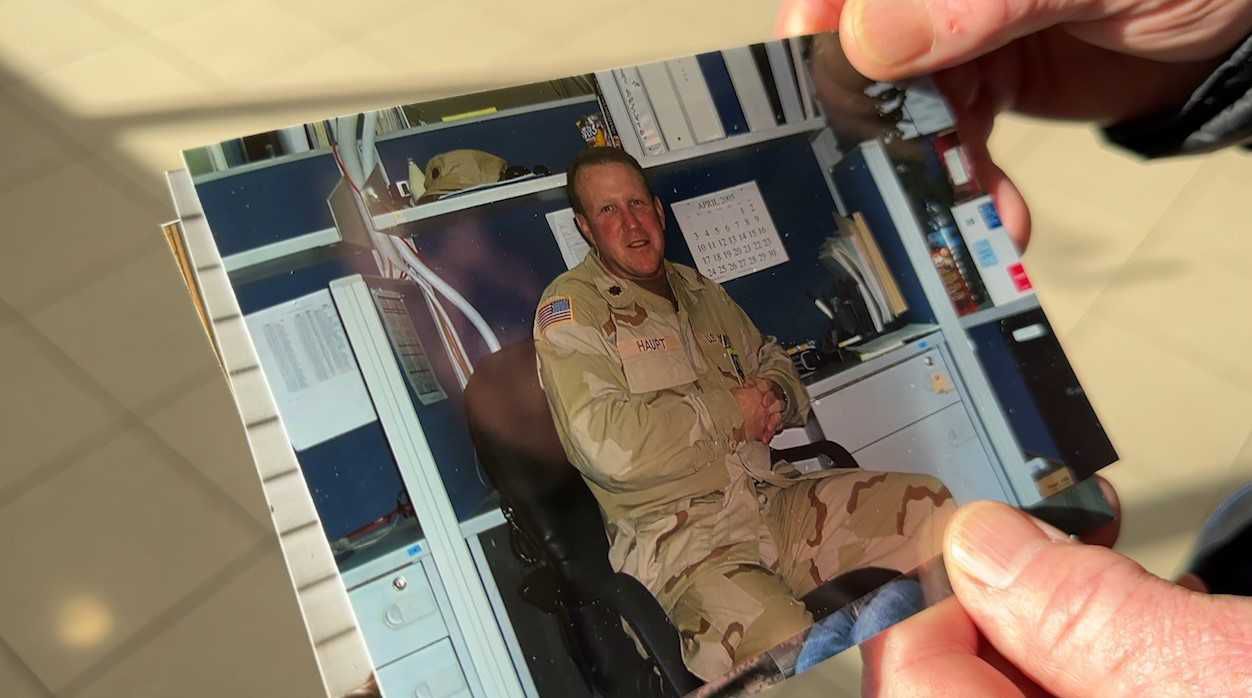MILWAUKEE — A medical team at Aurora St. Luke’s has implanted one of the first new medical devices for the heart.
Dr. Mohammad Mortada, an electrophysiologist at Aurora St. Luke’s, has been working with his patient David Haupt for years. He said Haupt had an irregular heartbeat and has lived with A-fib for years. This past November, Haupt’s heart slowed down and was affecting his everyday life.
At that same time, a new dual-chamber leadless pacemaker was approved by the Food and Drug Administration. Mortada said he knew this would be a good fit for Haupt.
Mortada and his team implanted the device in Nov. 2023, making Haupt one of the first patients in the country to receive this new device.

“We are finding solutions and we are so excited about anything new to make a difference for a person’s life,” Mortada said.
The device is like a pacemaker, but much less invasive. It’s leadless, meaning there are no wires from the pacemaker to the heart. Not having wires reduces the risk of complications and provides a patient better range of motion.
“To replace all that, we are able to have those two bullet sized pacemakers,” said Mortada. “That’s what David has.”
He said the two small implants produce electrical pulses and synchronize their pacing. Now, Haupt has a normal heartbeat and can be active again.

“That’s a great sense of peace,” Haupt said. “In the past, I just didn’t know. One day you are here; one day you are not.”
Haupt is a retired Marine and Wisconsin Army National Guardsman with more than 35 years of service. He said he doesn’t like sitting still.
“I’ve been having problems with the A-Fib for 10 years,” said Haupt. “This has given me more energy and is helping me sleep better.”



